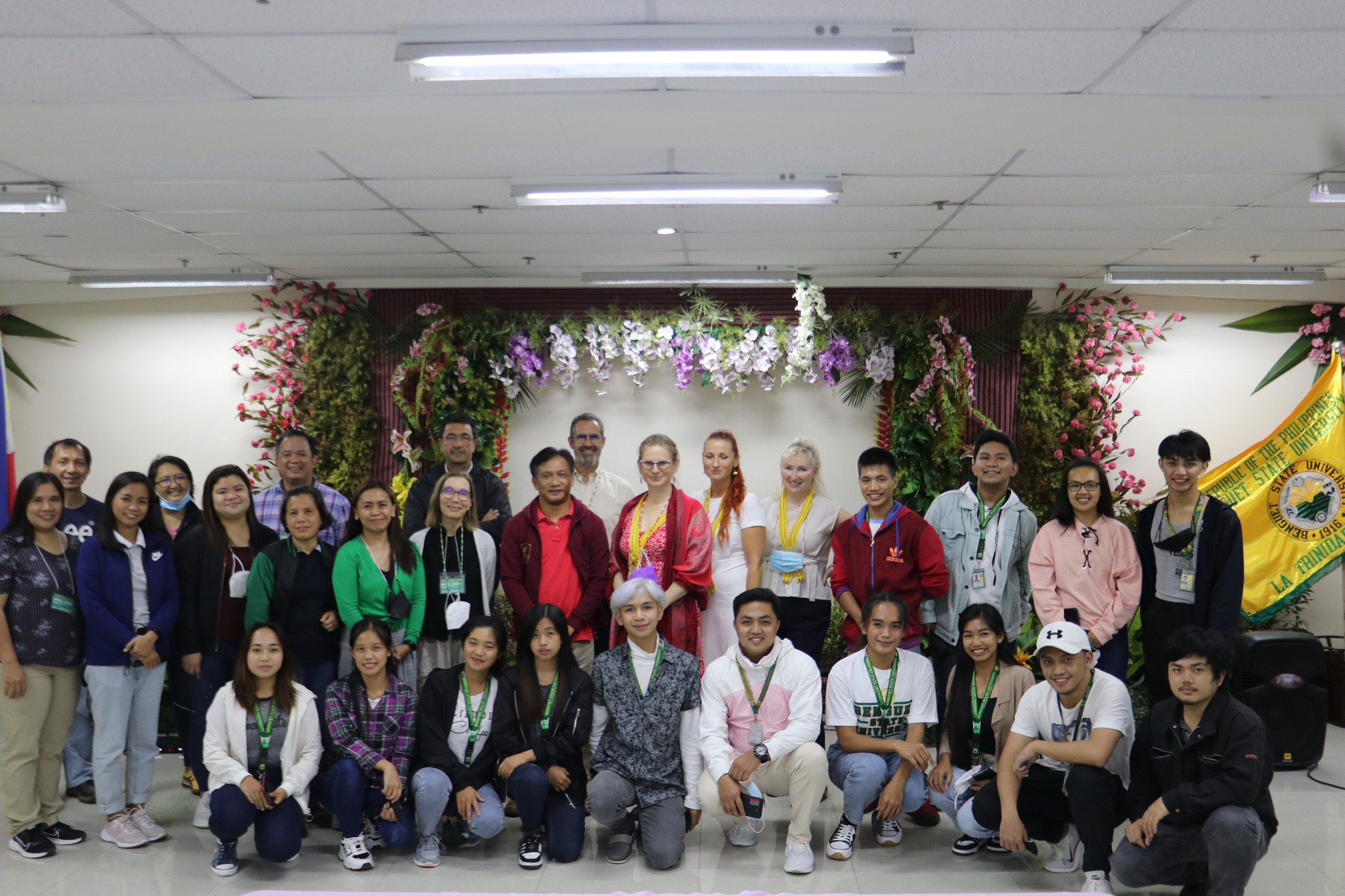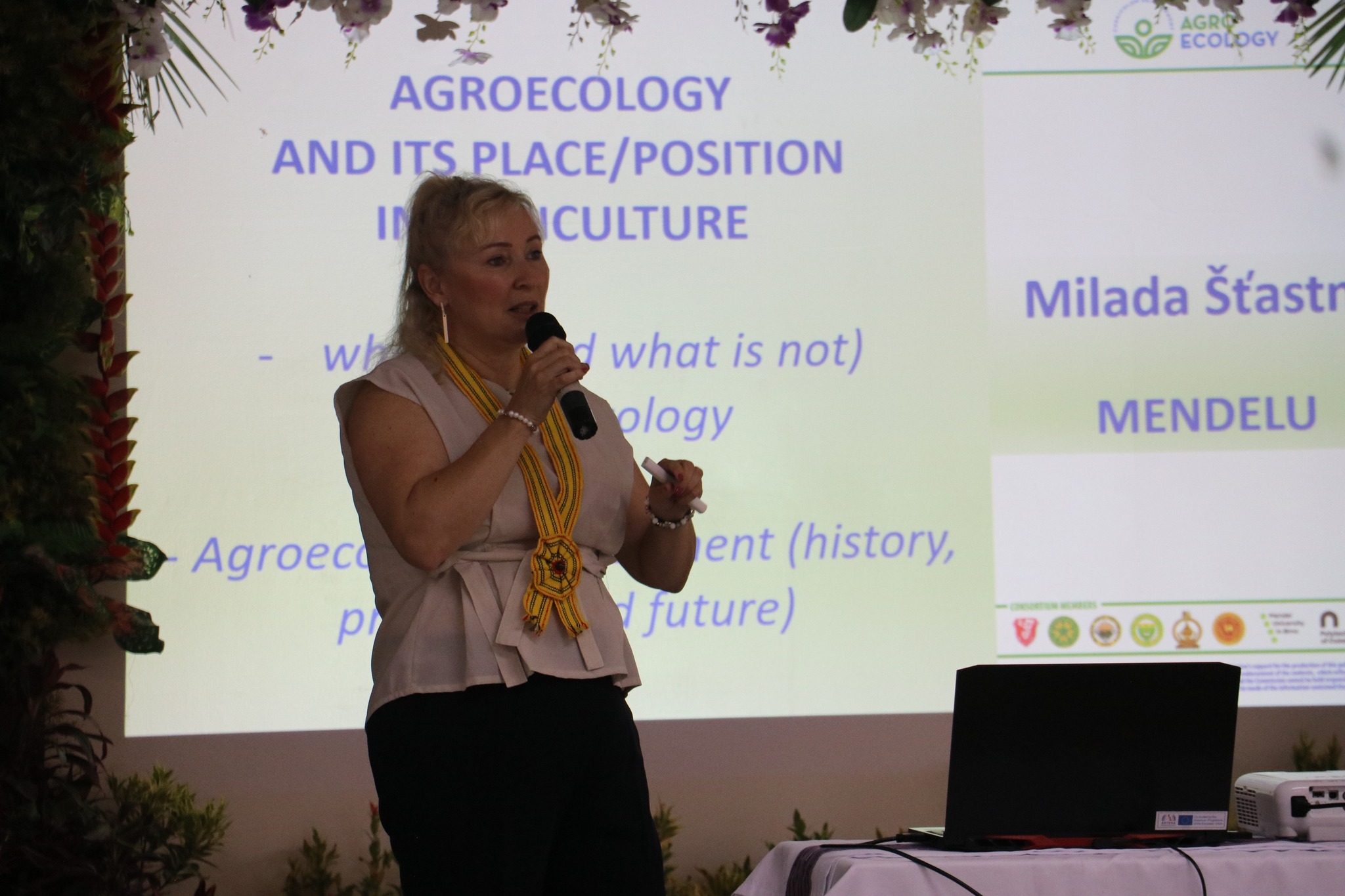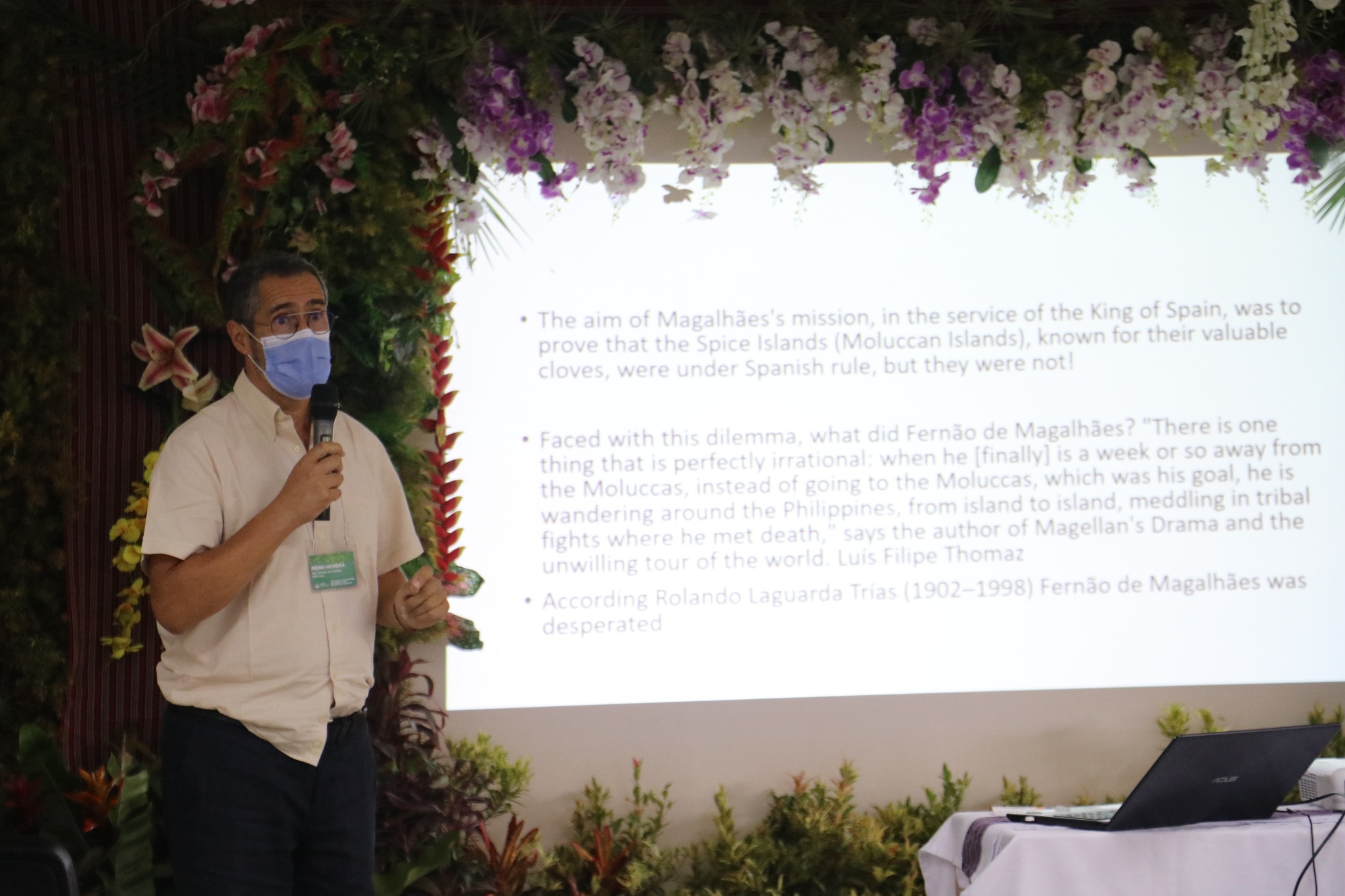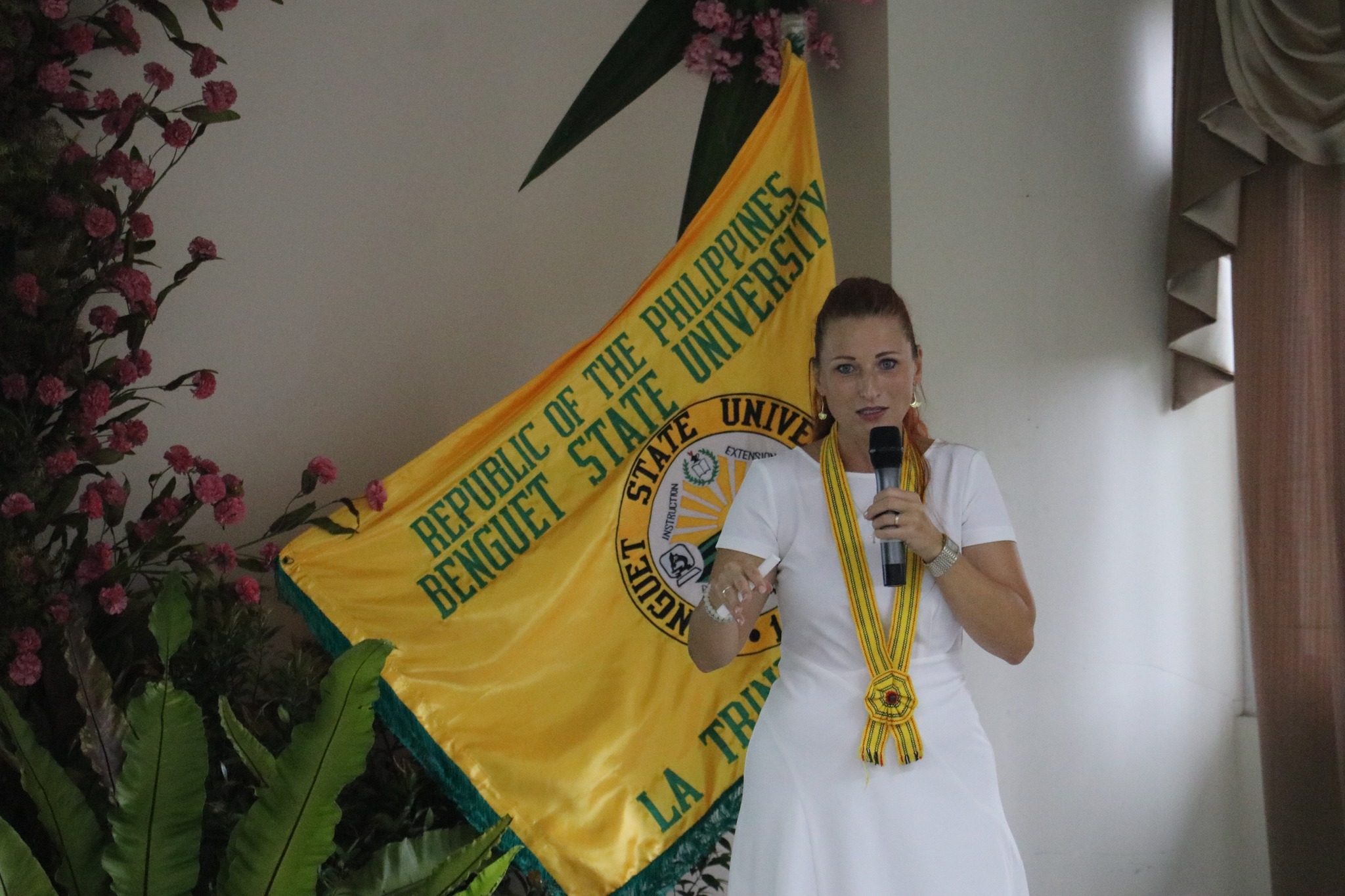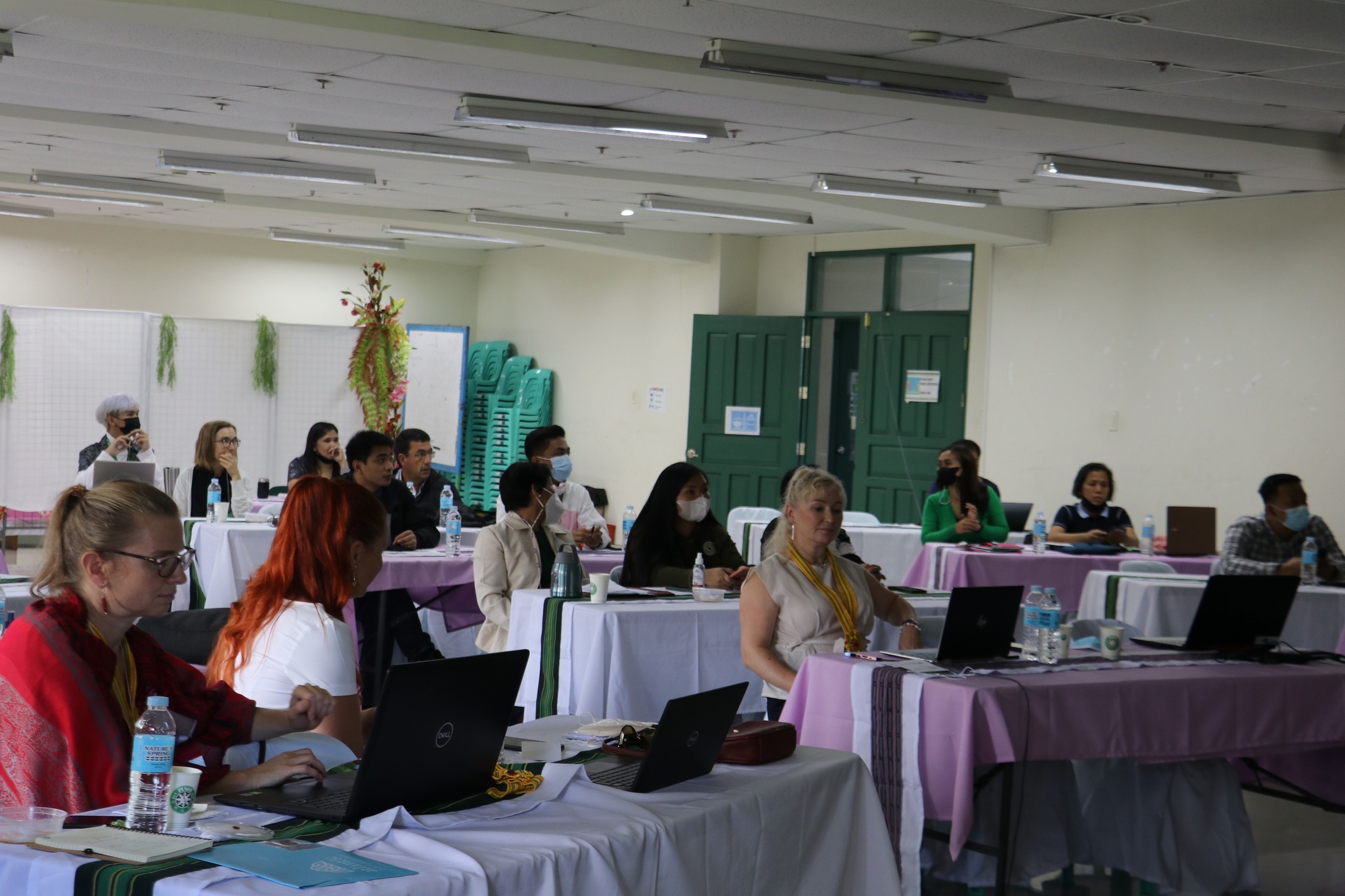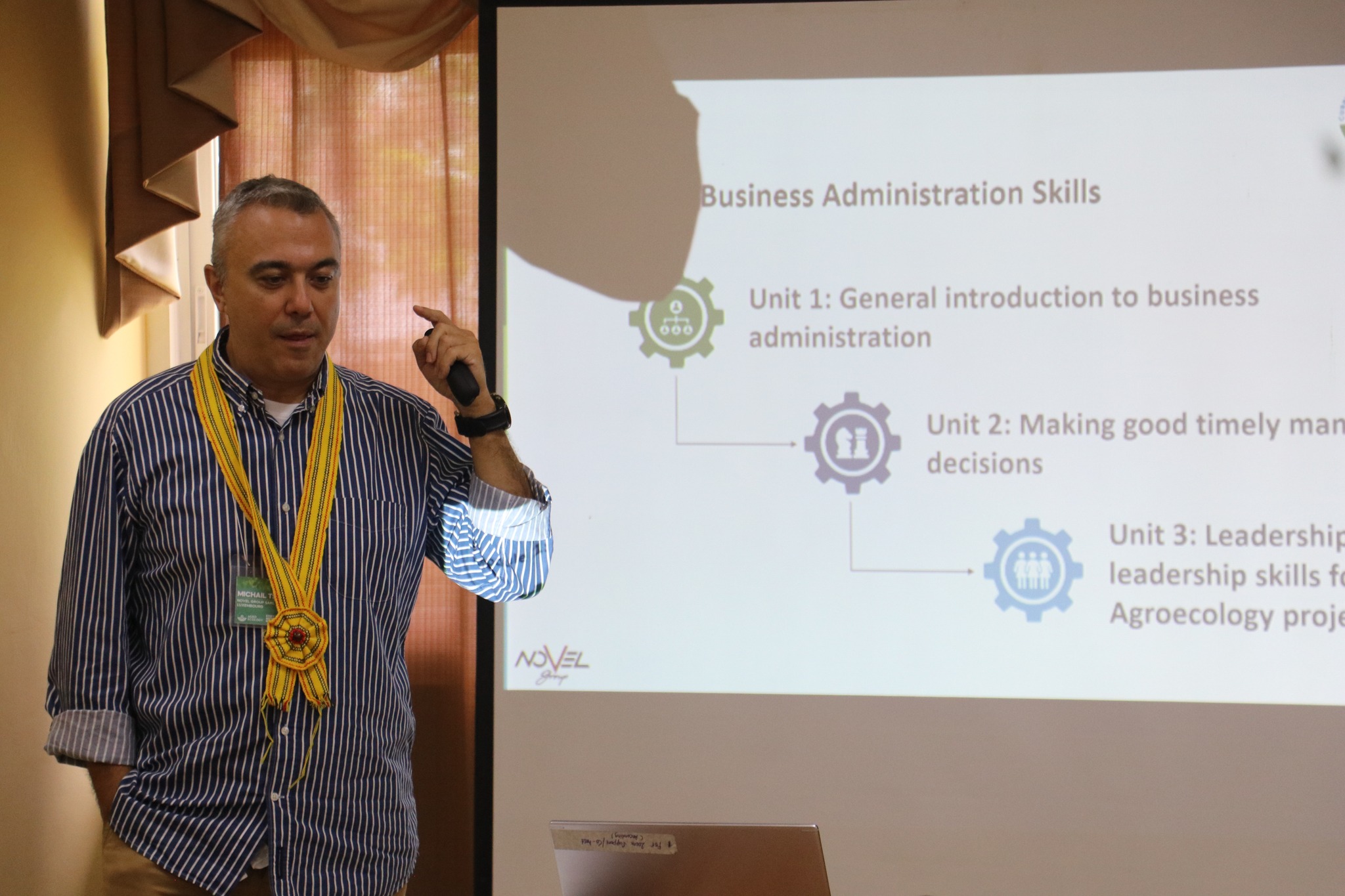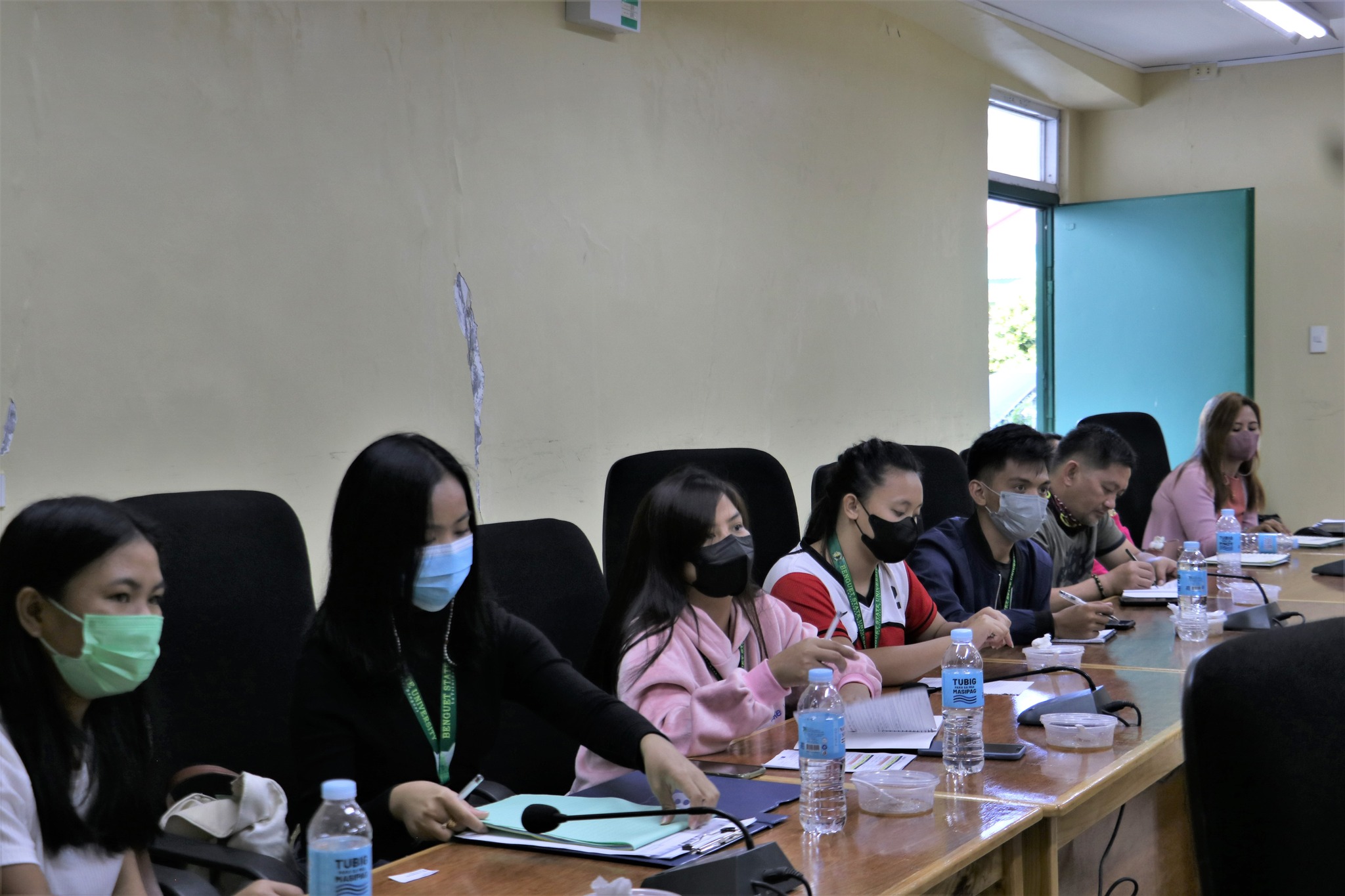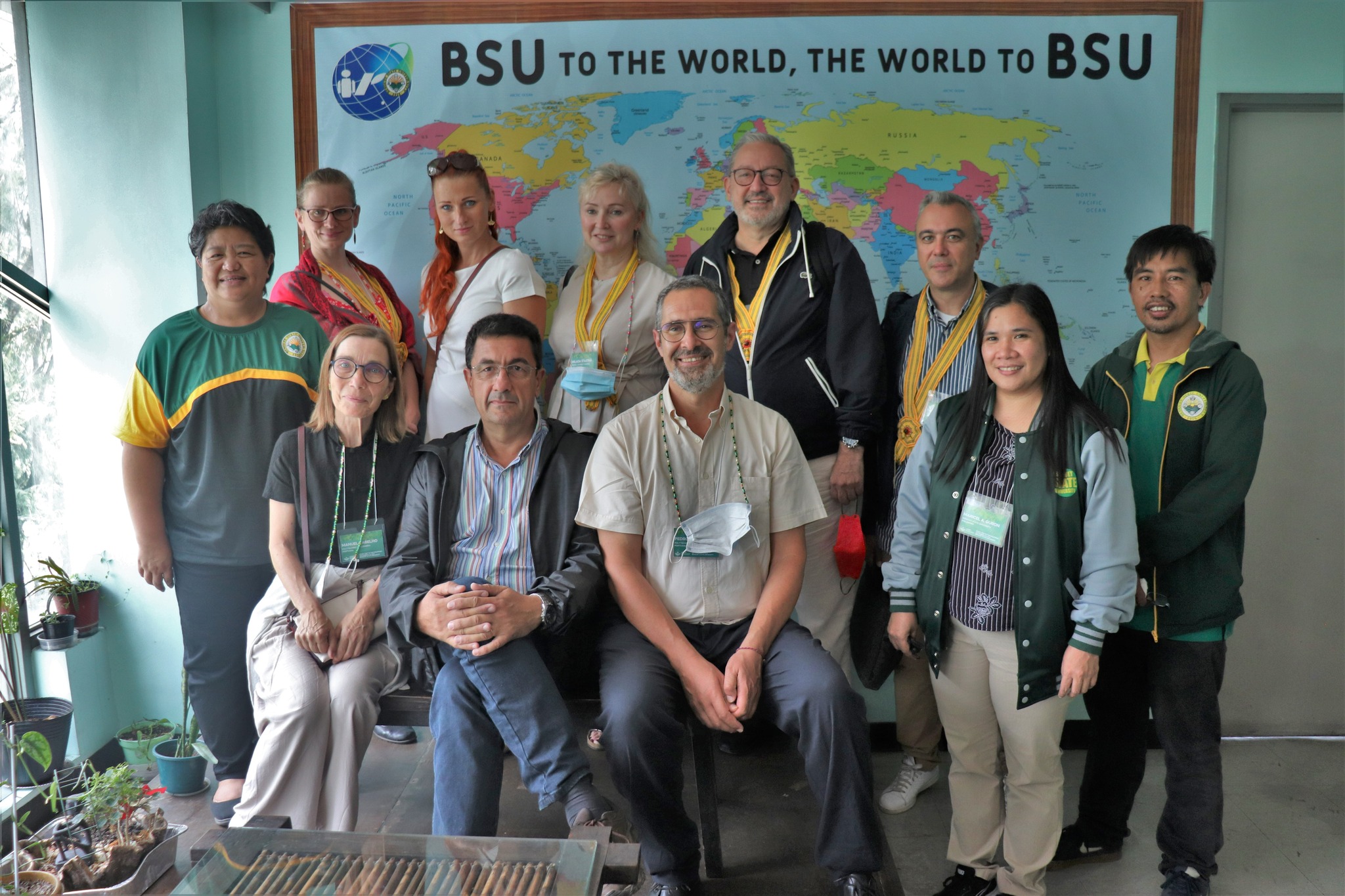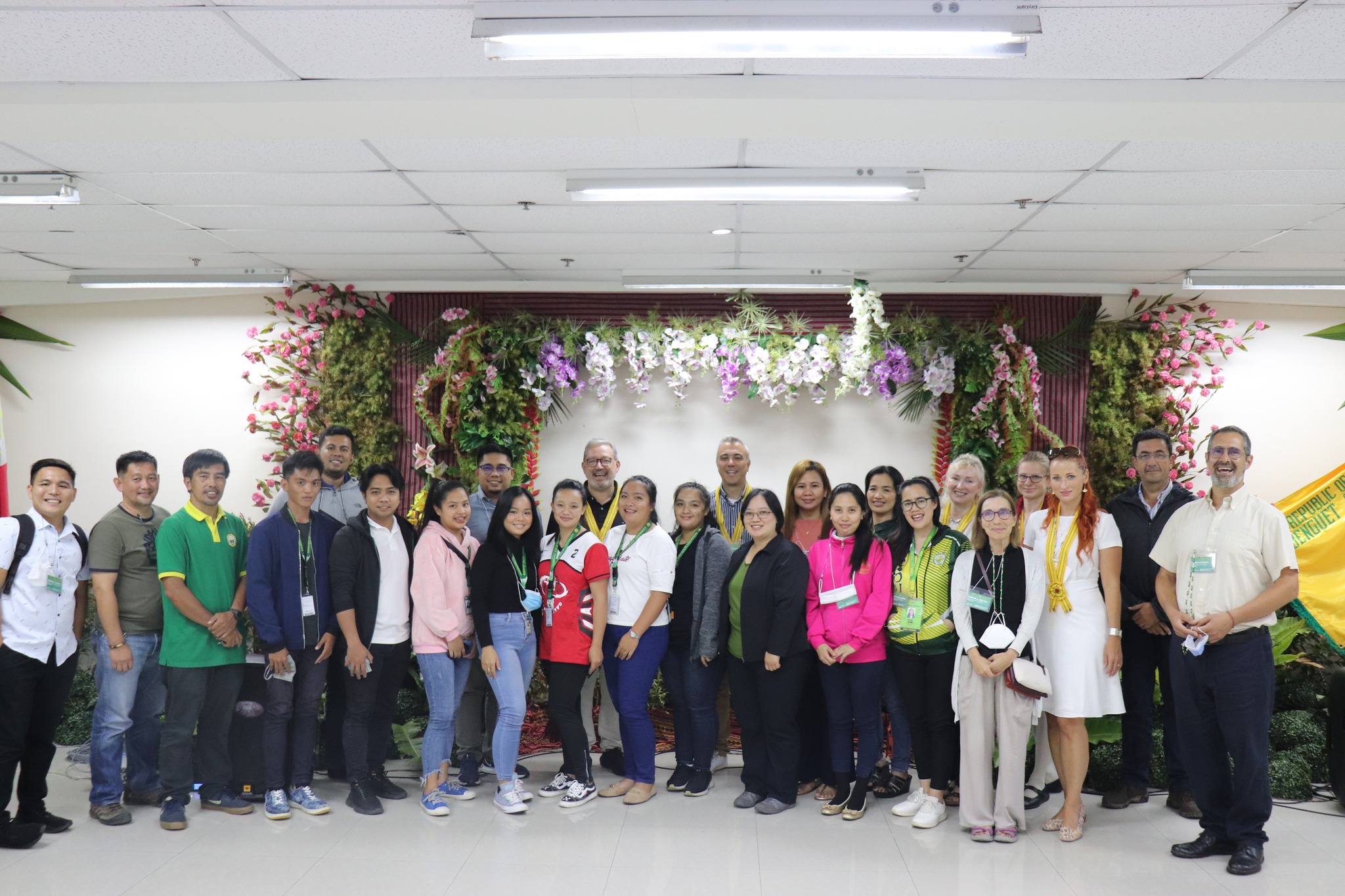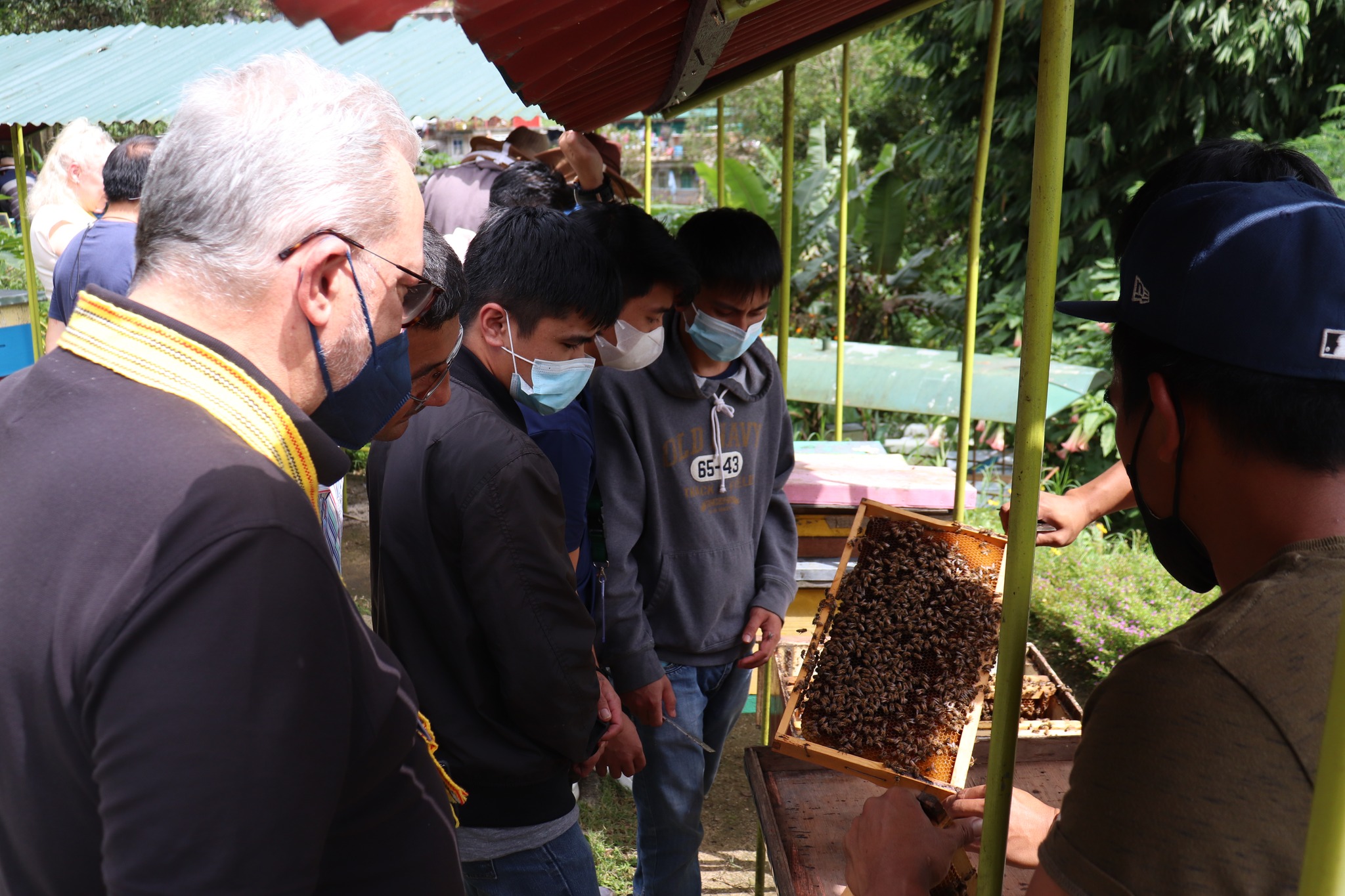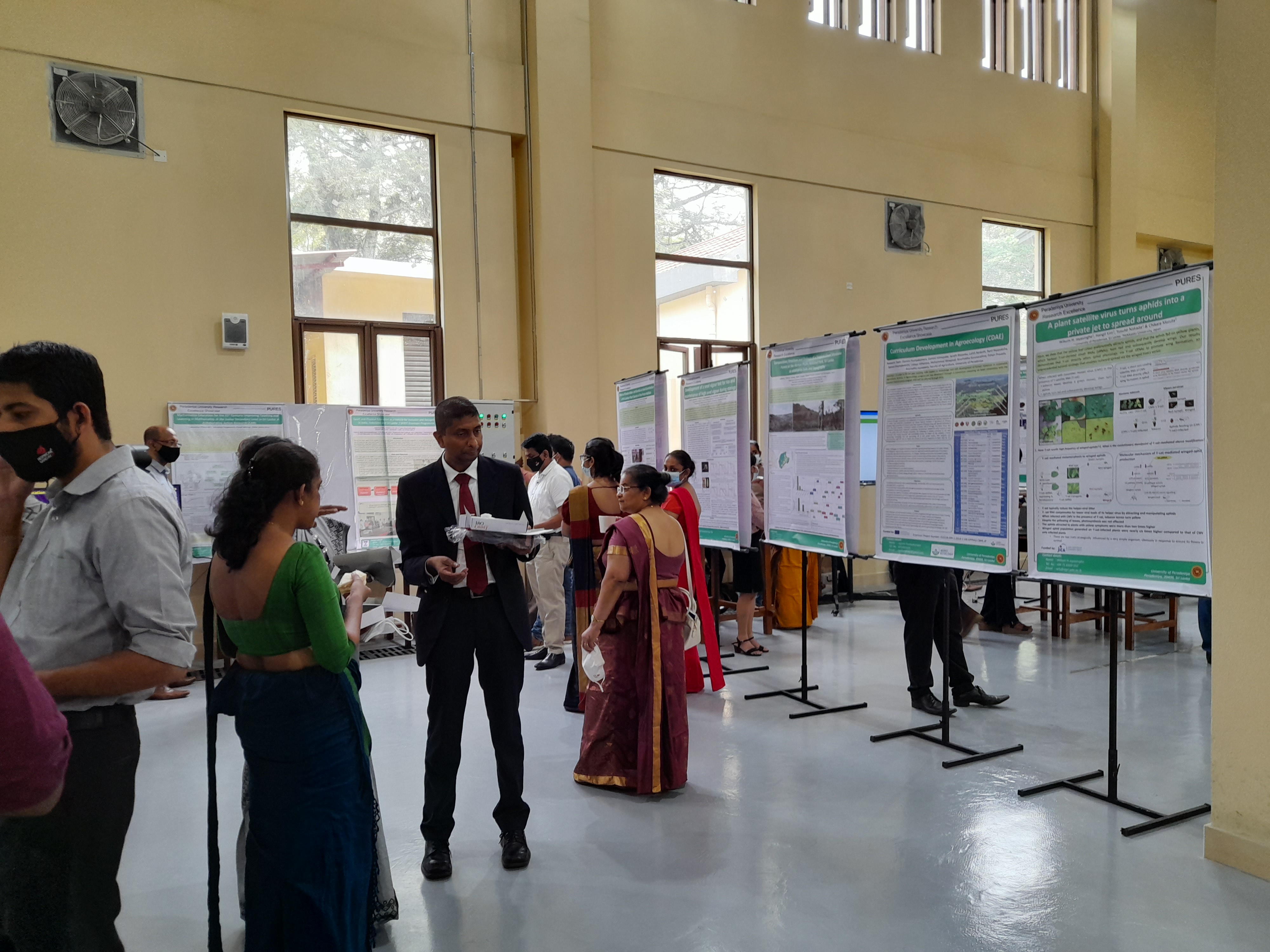On September 7, 2022, the Capacity Building for administrative and academic staff was divided and transpired simultaneously. Resource speakers from Novel Group Sarl handled the Administrative Staff, while Mendel University in Brno and Polytechnic of Coimbra managed the academic staff. Selected students of Benguet State University from the College of Agriculture and Natural Sciences also participated in this engagement.
During the administrative training, the Novel Group Sarl (Novel) discussed three skills: business administration skills, management skills, and fundraising skills. Michael Tsakonas of Novel lectured on management skills. The first slide of his presentation received attention from the participants. It is a quote that says; success today is no guarantee of success tomorrow. "One-day success doesn't determine the success for the entirety. There are many possibilities and outcomes that can affect tomorrow, and complacency is dangerous in management. Keep exploring beyond boundaries and innovating," stressed Tsakonas.
The first skills highlighted the importance of making timely management decisions and leadership, including basic leadership skills for start-up agroecology projects. Then, the training progressed to business administration and fundraising skills, which engaged the participants in analyzing, assessing, and planning a business and fundraising management strategy.
Meanwhile, on the other side of the hall, Mendel University in Brno (Mendelu) presented six replication training to the BSU and CLSU academic participants. The first replication training was lectured by Milada Stastna of Mendelu regarding Agroecology and its place or position in Agriculture. Stastna emphasized the principles that are aligned and unaligned with Agroecology.
"Contrary to the notion of people, agroecology is not organic farming, and it comes under agroecology," she stated.
The second replication training is on Environmental Security and Ecosystem Services by Hana Stredova of Mendel. "Global security threats as of today and for the next years are nuclear war, ecological collapse, and the debate for the use of biotechnological innovations. However, these challenges can be abated when a community or countries gather together to discuss indifferences for the betterment of the world," said Stredova.
Further, Pedro Moreira from Polytechnic of Coimbra presented Environmentally Friendly Plant Protection Strategies and emphasized how plants are valuable and essential in habitat, clothing, and fighting climate change's effects. "Plants are our helping partners in sweeping the global environment crisis and is one of the main sustainable approaches to agriculture," Moreira added.
At the halftime of the Day 3 training, the project partners had a quick visit to the BSU-International Relations Office (IRO) and an excursion to the Apiary Demonstration Farm located at the College of Forestry, which were accompanied by IRO and BSU staff during the engagement.
After the quick excursion, the fourth replication training on Agroecology Directions and Examples of How to Foster Impacts of Climate Change by Stastna continued. "Agroecology plays a major role in climate change adaptation and mitigation than conventional agriculture," said Stastna. To prove this claim, Stastna provided a case in point pieces of evidence and sustainability components for crops, soil, and water to fulfill the economic, social, and ecological of agroecology.
Stredova ended the training with her lecture about Agroecology and its frame in agrosciences, agronomy, agrology, and agroecology. Stredova underscored that agriculture and the environment must go hand-in-hand. "It should not only be balancing agricultural activities which are often or most of the time devastating nature but also trying to preserve and conserve the 'ecology' or natural resources as much as possible," said Stredova
